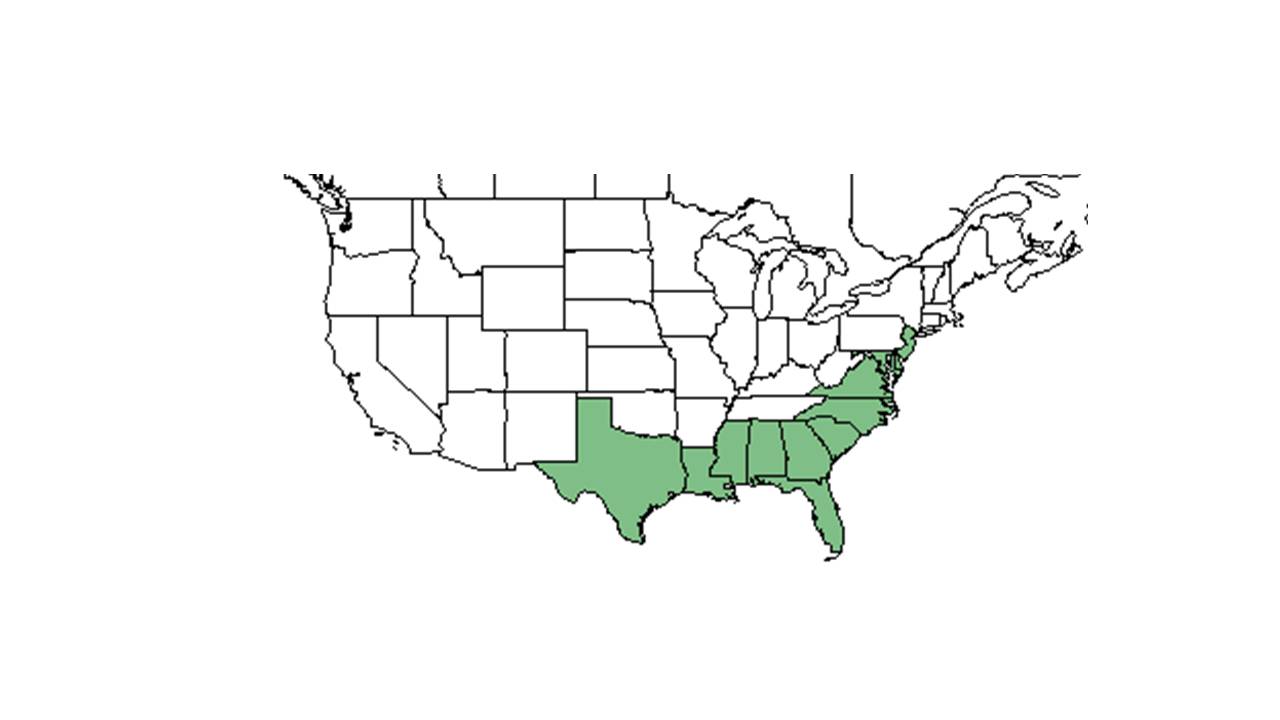Difference between revisions of "Solidago stricta"
KatieMccoy (talk | contribs) (→References and notes) |
KatieMccoy (talk | contribs) |
||
| Line 15: | Line 15: | ||
| binomial_authority = Aiton | | binomial_authority = Aiton | ||
| range_map = SOLI_STRI_dist.jpg | | range_map = SOLI_STRI_dist.jpg | ||
| − | | range_map_caption = Natural range of ''Solidago stricta'' from USDA NRCS [http:// | + | | range_map_caption = Natural range of ''Solidago stricta'' from USDA NRCS [http://plants.usda.gov/core/profile?symbol=SOST Plants Database]. |
}} | }} | ||
Revision as of 15:59, 16 October 2015
| Solidago stricta | |
|---|---|
Error creating thumbnail: Unable to save thumbnail to destination
| |
| Photo taken by Gil Nelson | |
| Scientific classification | |
| Kingdom: | Plantae |
| Division: | Magnoliophyta – Flowering plants |
| Class: | Magnoliopsida – Dicotyledons |
| Order: | Asterales |
| Family: | Asteraceae ⁄ Compositae |
| Genus: | Solidago |
| Species: | S. stricta |
| Binomial name | |
| Solidago stricta Aiton | |

| |
| Natural range of Solidago stricta from USDA NRCS Plants Database. | |
Common name: wand goldenrod
Contents
Taxonomic notes
Description
A description of Solidago stricta is provided in The Flora of North America.
Distribution
Ecology
Habitat
In the Coastal Plain in Florida and Georgia, S. stricta can be found in open woodlands, pine flatwoods, pine-palmetto flatwoods, ditches, lagoon edges, banks of brackish marshes, high pinelands, longleaf pine-turkey oak ridges, salt flats bordering mangrove swamps, recently burned longleaf pine-wiregrass savannas, seepage bogs, banks of ephemeral ponds, tidal marshes, sandhills, and coastal dunes (FSU Herbarium). It can also be found in lawns, clobbered slash pines, recently planted slash pine plantations, roadsides, vacant lots, powerline corridors, and logged over hillside bogs. It tends to be more common in mesic and wet areas than dry areas (Walker and Peet 1983). Substrates include loamy sand, peaty sand, alluvial sands, limerock, sand, and sandy peat (FSU Herbarium).
Associated species include Vigna luteola, Liatris, Pityopsis, Aristida stricta, Pinus palustris, Andropogon, Solidago sempervirens, Senecio and Euthamia (FSU Herbarium).
Phenology
Flowering and fruiting has been observed February through December (FSU Herbarium).
Seed dispersal
Seed bank and germination
Fire ecology
Pollination
Use by animals
Diseases and parasites
Conservation and Management
Cultivation and restoration
Photo Gallery
References and notes
- Florida State University Robert K. Godfrey Herbarium database. URL: http://herbarium.bio.fsu.edu. Last accessed: July 2015. Collectors: Loran C. Anderson, Cecil R Slaughter, Ann F. Johnson, Roomie Wilson, Robert L. Lazor, William P. Adams, R.K. Godfrey, William Reese, Paul Redfearn, John Morrill, R. Kral, M. Darst, Angus Gholson, F. C. Creager, D. B. Creager, Delzie Demaree, C. T. Reed, O. Lakela, J. B. Nelson, Sidney McDaniel, John Morrill, J. D. Lazor, V. I. Sullivan, A. H. Curtiss, A. F. Clewell, George R. Cooley, H. E. Grelen, Richard Carter, K. Craddock Burks, K. Studenroth, C. Florko, J. D. Lazor, Mark A Garland, Gary Knight, H. S. Conard, Rodie White, R. A. Norris, R. Komarek, Thomas E. Miller. States and Counties: Florida: Alachua, Bay, Broward, Calhoun, Charlotte, Dade, Dixie, Duval, Franklin, Gadsden, Gulf, Hillsborough, Jackson, Leon, Liberty, Monroe, Nassau, Okaloosa, Pinellas, Polk, Putnam, Santa Rosa, Taylor, Volusia, Wakulla. Georgia: Grady, Thomas. Compiled by Tall Timbers Research Station and Land Conservancy.
- Walker, J. and R. K. Peet. 1983. Composition and species diversity of pine-wiregrass savannas of the Green Swamp, North Carolina. Vegetatio 55:163-179.